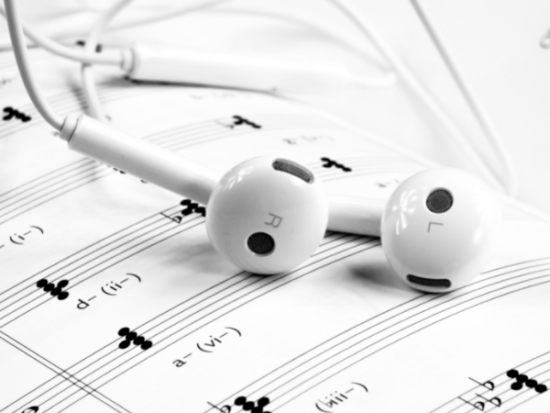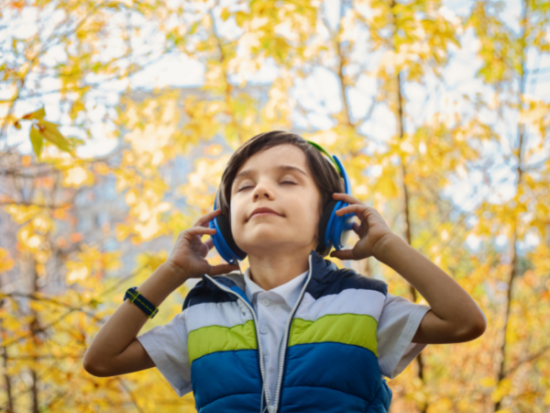What does the power of music do for the body?
Music is one common interest in people today. The power of music is moving, and it has been shown to help people’s minds and bodies. Music plays a crucial role in our lives every day.
Music has many functions for people. If you want to decompress after a long day at work, the piece can assist in helping with that. Music can do so much for listeners and completely turn their worlds around.
The Power of Music and What It Does For The Body

Studies have shown that music benefits our mental health. When we listen to music, our dopamine levels in our brains increase.
For those of you who do not know what dopamine is, it is a chemical in our brains that helps improve our moods.
The more dopamine we have, the better our mental health. After many studies, researchers found that music not only improves your mental health but other parts of our bodies as well.
The power of music has been introduced to hospitals and other health care facilities for all of its practical benefits. Another benefit that music helps with is that it decreases anxiety and depression.
Brunel University performed a study. Their findings show that when you play music, patients who were in pain suddenly felt different. The music eased their discomfort, and also, their anxiety decreased.
Seven thousand patients had a surgical procedure done. After the operation, they listened to music and reported less pain and no need for medication.
There have been several studies regarding music and hospitalized patients. All of them proving that music is compelling for the body. This includes mental and physical.
Related Articles
8 Special Ways to Announce a Pregnancy
How to Get Tiktok Famous in 3 Easy Steps
Best Songs to Listen to Right Now
Music is Important and Powerful
The power of music is significant and influential. When we hear music, our brains are triggered to release opioids, which are naturally the body’s pain relievers.
If you listen to calming music that relaxes you, your pain can be reduced, and your blood pressure decreases as well.
Speaking of health, music has been shown to assist us in cutting calories. They were playing soft music while eating causes people to eat slower. This causes people to eat less and stay aware of what they are eating.
There have been studies with those who are coping with Parkinson’s disease and music too. The studies show that these people can learn how to walk easier when they hear music.
Children who are on the autism spectrum are more likely to interact socially when they hear music playing.
Another study shows that babies born prematurely will gain more weight when there is music being played. In addition to babies and music, when a woman is pregnant, listening to classical music and playing it for the baby is good for the developing baby’s brain.
Related Article: Best House Music to Listen to in 2021
The Power of Music on the Brain
Music being played in any sense will affect every part of the brain. When listening to music, every aspect of your brain is active, unlike everyday activities that leave some of the brain inactive.
The power of music and the nervous system connect. This means music can affect the heartbeat, blood pressure, feelings, and emotions.
Music can increase and decrease our heart rate. Slow music also reduces tension in the neck and shoulders. Calm music helps relieve stress, which helps us heal faster in the long run.
Music has been shown to help stroke patients who have lost some of their memory.
When the patients heard music for a couple of hours each day, their verbal memory improved, and could focus better. Their moods also were more positive as well.
Music helps improve the quality of your sleep. If you find it hard to go to sleep at night or sleep-deprived, music can be compelling for you. Studies have shown that those who suffer from insomnia or sleep deprivation can improve their sleep quality simply by listening to music.
You can sleep longer and improve the quality of your sleep by listening to music when you go to bed. Classical music is known to be helpful in this process.
Music has been known to help reduce seizures. It makes you stronger and boosts your immune system.
Related Article: Spotify vs. Amazon Music – What’s Better?
Music is Powerful to the Mind
There is a massive connection between music and the mind. Listening to music helps engage your entire brain. Music helps to reduce depression.
Music helps us improve how we perform under stress and pressure. Listening to upbeat music has been shown to help athletic performances when they are under pressure.
Music is compelling to the mind as well. Music helps improve cognition. Listening to music can assist in helping people with memory loss regain lost memories. Music reduces anxiety levels.
Music affects our memory tremendously. Repeating some aspects of rhythm help our brain form specific patterns. These patterns enhance our memory. It helps improve our mood and regulate emotions.
Music therapy is used worldwide on people who have a hard time communicating. Many people need help with coping or expressing fear or anger.
Music can help those who usually have issues expressing fear or anger to show this emotion easier.
Music sparks creativity in people who are struggling. If someone is experiencing writer’s block, playing music is very beneficial to them. It activates the brain quickly, and it sparks creativity.
Related Article: Top Country Artists to Listen To
Summary
To sum it all up, music is conducive and beneficial in our everyday lives. It motivates us and inspires us for anything. Music boosts our motivation and endurance when exercising.
When we listen to music, our entire brain is engaged and active. Music elevates our moods as well as reducing stress. As you can see, music is one of the most potent elements on Earth.
Music is fundamentally something that we all need in life. Without music, things in our world would be very different, and we are happy that we have it with us. Without music, life would not be complete.




